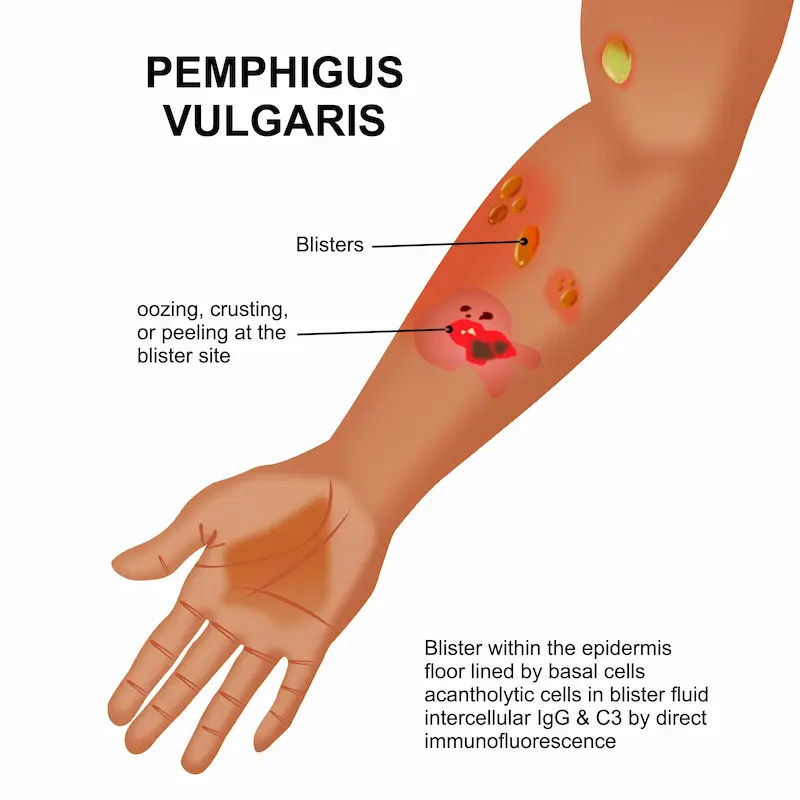Hashimoto's Thyroiditis Overview and Management
Hashimoto’s Thyroiditis is an autoimmune condition that leads to hypothyroidism. Learn its causes, symptoms, and how to manage it with medication, diet, stress control, and regular monitoring.


Living with a chronic condition can be challenging, especially when it affects something as vital as your thyroid gland. If you or a loved one has been diagnosed with Hashimoto’s Thyroiditis, you might have questions about what it means, how it affects your body, and what you can do to manage it. This guide is here to help you understand the condition in simple terms and provide practical tips for living well with it.
What is Hashimoto’s Thyroiditis?
Hashimoto’s Thyroiditis (also called Hashimoto’s disease) is an autoimmune disorder where your immune system mistakenly attacks your thyroid gland; a small, butterfly-shaped gland in your neck that produces hormones regulating metabolism, energy, and overall body function.
Over time, this attack leads to chronic inflammation and gradual damage, causing the thyroid to become underactive (hypothyroidism). This means it doesn’t produce enough thyroid hormones, slowing down many bodily functions.
Who is at Risk?
Hashimoto’s is the most common cause of hypothyroidism, especially in women (who are 7-10 times more likely to develop it). Other risk factors include:
- Family history of thyroid or autoimmune diseases
- Age (most common between 30-50 years)
- Other autoimmune conditions (like Type 1 diabetes, lupus, or rheumatoid arthritis)
Symptoms of Hashimoto’s Thyroiditis
Since thyroid hormones affect nearly every organ, symptoms can be wide-ranging and develop slowly. Common signs include:
- Fatigue (feeling exhausted despite rest)
- Weight gain (without changes in diet)
- Cold sensitivity (feeling unusually cold)
- Dry skin and hair
- Muscle or joint pain
- Constipation
- Depression or brain fog
- Swelling in the neck (goiter)
Some people may not notice symptoms at first, making regular check-ups important if you're at risk.
Consult Top Specialist
What Causes Hashimoto’s?
While the exact cause isn’t fully understood, experts believe a combination of genetics, environmental triggers, and immune system dysfunction play a role. Possible triggers include:
- Excess iodine intake
- Viral infections
- Hormonal changes (pregnancy, menopause)
- Chronic stress
How is Hashimoto’s Diagnosed?
If you have symptoms, your doctor may recommend:
1. Blood tests:
- TSH (Thyroid-Stimulating Hormone) – High levels suggest hypothyroidism.
- Free T4 & T3 – Low levels confirm underactive thyroid.
- Thyroid antibodies (TPO antibodies) – Detects autoimmune attack.
2. Ultrasound (if a goiter or nodules are present).
Managing Hashimoto’s Thyroiditis
While there’s no cure, Hashimoto’s can be effectively managed with medication and lifestyle adjustments.
1. Medication (Thyroid Hormone Replacement)
- Levothyroxine (Synthroid, Eltroxin, etc.) is the standard treatment. It replaces the missing thyroid hormone.
- Take it consistently (preferably on an empty stomach, 30-60 mins before breakfast).
- Regular blood tests help adjust the dose as needed.
2. Diet & Lifestyle Tips
- A healthy lifestyle can support thyroid function and reduce symptoms:
- Eat a Balanced Diet
- Focus on whole foods (vegetables, lean proteins, healthy fats).
- Include selenium & zinc (found in Brazil nuts, eggs, seafood).
- Limit processed foods, excess sugar, and refined carbs.
- Avoid Goitrogenic Foods in Excess (if raw)
Foods like soy, cabbage, broccoli, and cauliflower may interfere with thyroid function if eaten in large amounts raw. Cooking reduces this effect.
Manage Stress
- Chronic stress worsens autoimmune responses. Try yoga, meditation, or deep breathing exercises.
Exercise Regularly
- Gentle activities like walking, swimming, or strength training help with energy and metabolism.
Get Enough Sleep
- Aim for 7-9 hours per night to support hormone balance.
3. Monitor Your Health
- Keep up with regular thyroid check-ups.
- Watch for new symptoms (like extreme fatigue, hair loss, or mood swings) and discuss them with your doctor.
When to See a Doctor?
If you experience:
- Unexplained weight gain or fatigue
- Persistent cold intolerance
- Swelling in the neck
- Family history of thyroid disease
- Consider booking a thyroid function test or consulting an endocrinologist through Apollo 24|7 for expert guidance.
Final Thoughts
Hashimoto’s Thyroiditis is a lifelong condition, but with proper treatment and self-care, you can lead a healthy, active life. If you suspect thyroid issues, don’t ignore the signs—early diagnosis and management make a big difference!
Need help? Schedule a thyroid check-up or consultation with an expert on Apollo 24|7 today!
Consult Top Specialist
Consult Top Specialist
Dr. Gaddam Manoj
General Practitioner
1 Years • MBBS
Hyderabad
Aaradhya clinic, Hyderabad

Dr. Rajib Ghose
General Practitioner
25 Years • MBBS
East Midnapore
VIVEKANANDA SEBA SADAN, East Midnapore

Dr. Arthi S
Family Physician
3 Years • MBBS
Bengaluru
PRESTIGE SHANTHINIKETAN - SOCIETY CLINIC, Bengaluru

Dr Syed Mateen Pasha
General Physician
2 Years • MBBS
Bengaluru
PRESTIGE SHANTHINIKETAN - SOCIETY CLINIC, Bengaluru

Dr. Mary Susan K S
General Physician/ Internal Medicine Specialist
13 Years • MBBS, MD INTERNAL MEDICINE
Bengaluru
Apollo Clinic, Sarjapur Road, Bengaluru
Consult Top Specialist
Dr. Gaddam Manoj
General Practitioner
1 Years • MBBS
Hyderabad
Aaradhya clinic, Hyderabad

Dr. Rajib Ghose
General Practitioner
25 Years • MBBS
East Midnapore
VIVEKANANDA SEBA SADAN, East Midnapore

Dr. Arthi S
Family Physician
3 Years • MBBS
Bengaluru
PRESTIGE SHANTHINIKETAN - SOCIETY CLINIC, Bengaluru

Dr Syed Mateen Pasha
General Physician
2 Years • MBBS
Bengaluru
PRESTIGE SHANTHINIKETAN - SOCIETY CLINIC, Bengaluru

Dr. Mary Susan K S
General Physician/ Internal Medicine Specialist
13 Years • MBBS, MD INTERNAL MEDICINE
Bengaluru
Apollo Clinic, Sarjapur Road, Bengaluru




